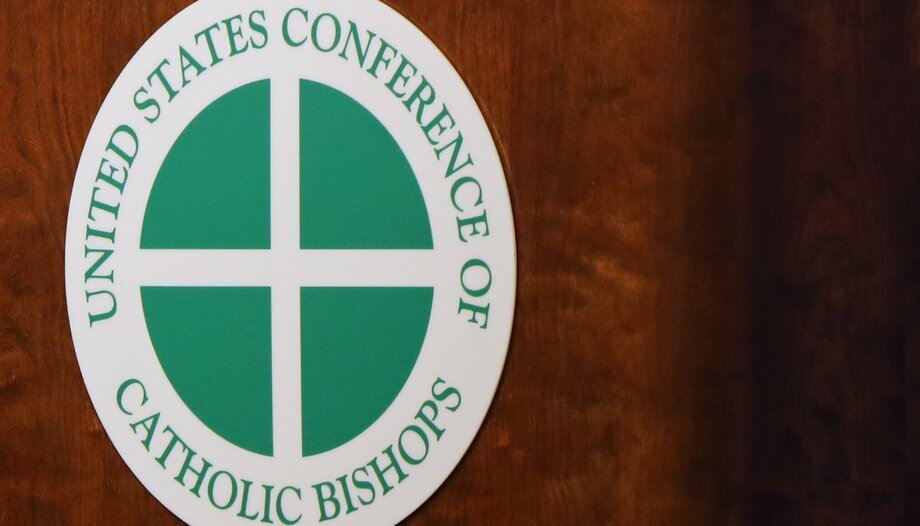 18 delegates to represent the U.S. at the Synod of Bishops
18 delegates to represent the U.S. at the Synod of Bishops The rebirth of the Eucharist in New York City
The rebirth of the Eucharist in New York CityEucharist, synodality and the various conflicts in the world were some of the topics discussed on the second day of the plenary meeting of the United States Conference of Catholic Bishops (USCCB).USCCB) on November 14 in Baltimore, Maryland. The formal proceedings were opened with the reading of a message from the bishops to the Holy Father, followed by Cardinal Christophe Pierre, Apostolic Nuncio to the USA and Bishop Timothy P. Broglio, President of the USCCB.
Sadly, as we gather, in AssemblyThe prelates tell the Pope, "the destruction and devastation of war weigh on our hearts. As you have said, we must not forget Ukraine, Palestine and Israel. Let us not forget the many other regions where war continues to rage. As you have often said: 'War is defeat,'" they say in their message to the Holy Father. In their missive, the prelates also refer to the synodal journey: "During the coming year we hope to facilitate prayer and dialogue around the reflections of the synthesis report. Accompanying the faithful on the synodal journey has been a grace for our Church," they say.
About the Synod
After the reading of the message to Pope Francis, Cardinal Christophe Pierre took the floor and focused his speech on the relationship between Eucharist and Synodality. Pierre said, two initiatives have guided our journey: the National Eucharistic Renaissance and the global call to synodality. Alluding to the encounter of two travelers with Jesus on the road to Emmaus (Lk 24:13-35), the nuncio affirmed that the synodal journey is based on encountering, accompanying, listening, discerning and rejoicing in what the Holy Spirit reveals. "Eucharistic rebirth and synodality go hand in hand. Or to put it another way: I believe we will have a true Eucharistic rebirth when we experience the Eucharist as the sacrament of the incarnation of Christ, the Lord walking with us on the way," the cardinal said.
Recalling Pope Francis' homily at the opening Mass of the Synod in Rome, Bishop Pierre said that the synod is not an agenda or an idea but "the way in which we are called to be the Church of God, for the sake of the evangelization of today's world, which is in great need of the Gospel of hope and peace." In this sense, Cardinal Pierre exhorted the North American prelates to be "adventurers for the Lord" so that united harmoniously in diversity, they may bear witness before the people of God.
Archbishop Timothy P. Broglio, Archbishop for the U.S. Military Services, who participated in the Synod in Rome, spoke of his experience during that meeting and noted that many of the aspects that were experienced are already a reality in the United States: "The collegial atmosphere that characterizes these assemblies, the consideration and interaction that characterizes the work of the National Advisory Council, the work of the diocesan pastoral councils, the presbyteral councils, the review boards, the school board and so many other organizations come easily to mind. Let us also think of the committees of this conference. At least in those on which I have served, the interaction between bishops, staff and consultants has been active, healthy and extremely helpful."
On conflicts in the world
In the second part of his introductory address, Bishop Broglio spoke of world conflicts, including Russia's invasion of Ukraine and the war between Israel and Palestine: "We recognize and defend Israel's right to exist and to occupy a place among the nations. At the same time, we know that the Palestinians, even though they are a minority, have the right to a land of their own". Bishop Broglio also mentioned three Catholic associations and groups helping to alleviate the situation in the Holy Land, including the Knights and Ladies of the Holy Sepulchre, the Bethlehem Hospital and the Catholic Near East Welfare Association.
The USCCB president also spoke of the Russian invasion of Ukraine and called it "unjust aggression." The prelate concluded his address by mentioning the various ways in which the North American bishops strive to carry the message of the Gospel. In this task, the prelate thanked the priests who are "at the forefront of these efforts. They are our first collaborators and we depend on their tireless efforts.
Finally, Bishop Broglio mentioned some of the different lay apostolates that contribute to this task of evangelization in the country, among them: NET Ministries, Evangelical Catholic, Formed and the Cursillo de Cristiandad. "On behalf of all the bishops I thank all those who strive to infuse vitality, commitment and renewal to our faith communities, thus reaching the peripheries," he said.
During this second day of public sessions, the bishops also voted to support the cause of beatification and canonization, at the diocesan level, of the Servant of God Isaac Thomas Hecker (1819-1888), founding priest of the Paulist Fathers. The bishops pointed out that Father Hecker "continues to be for our contemporaries a model of the search for God, of the experience of conversion, of heroic dedication in service, of promoting the mission of the Church and of diligence in seeking the guidance of the Holy Spirit". The work of this autumn plenary assembly concludes on November 15.











